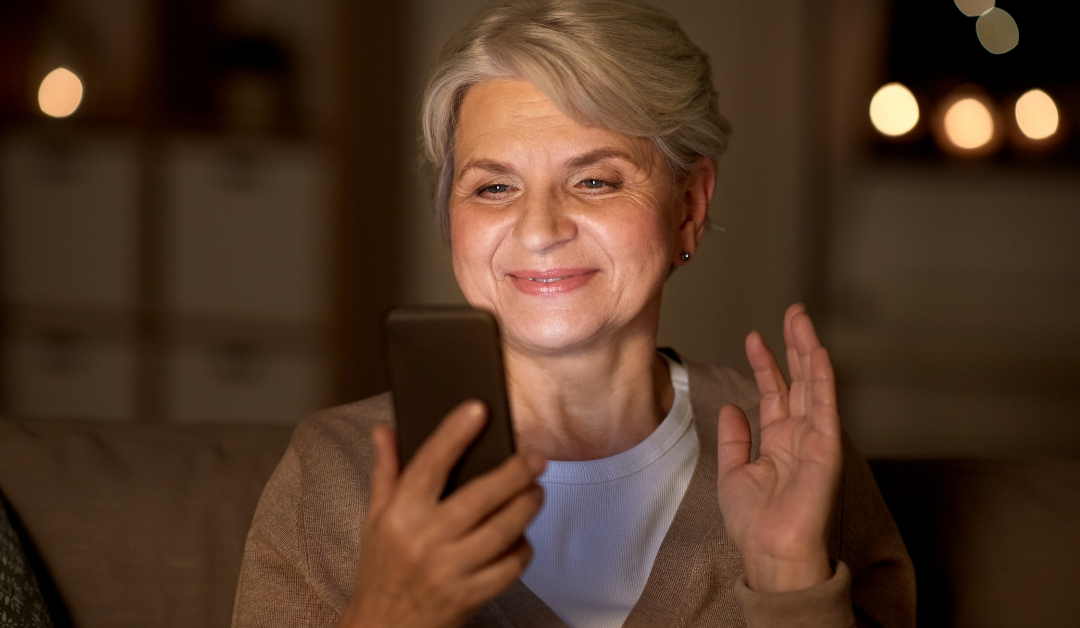Life as we know it has changed in many ways due to the coronavirus pandemic (COVID-19). Millions of people have been affected worldwide, from the loss of life or a job to normal day-to-day routines. Not only has our reality shifted, but the ways in which we grieve have also evolved, making a difficult process even harder. Typically, people associate grief as a response to death, however, you can experience grief with any type of loss, including the loss of a job, safety, fears of the future, and changes in daily habits.
This month, we’re sharing four ways to help support your well-being while grieving during the pandemic. The first two suggestions are geared to those who are processing all types of grief, while the last two focus more on helping those who are bereaved.
Stay Connected Virtually
Staying connected to others is important if you’re grieving and socially isolated. However, social distancing has made it difficult to do so. As a result, video chatting has quickly become one of the best options to connect with friends and loved ones. Free programs like Zoom or Google Meet have made it easy to connect ‘face-to-face.’ Try scheduling video calls every few days or on a weekly basis so that you don’t have to worry about coordinating schedules. Plus, it will give you and your friends and family something to look forward to!
The pandemic has uprooted our daily lives, disrupting our normal day-to-day routine. Those grieving normalcy can opt for alternative ways to stay connected with friends and family. Here are a few ideas:
- Write letters to your friends and family and send them via snail mail.
- Teach each other a new skill virtually or take a video of yourself and share it with friends and family.
- Set up a virtual lunch or dinner date and catch up.
- Write encouraging and thoughtful messages on your sidewalk with chalk for those passing by.
- Set up a virtual game night with loved ones and either play a game you all own or play an online game.
Check out this article by Simple Most for more fun ideas to stay virtually connected with family and friends.
Consider Minimizing Your Media Intake
Lately, the media has been overflowing with updates and reports on the latest COVID-19 news. Aditi Nerurkar, M.D., MPH, an integrative medicine physician at Harvard Medical School, says, “as humans, we need to be informed in order to protect ourselves.” Therefore, even when the news is negative, we often feel compelled to read it.
While it’s sensible to be aware of major announcements by government and health officials, too much can be emotionally draining and stressful for some people. Nerurkar goes on to say, “think of it as exercise. It’s good for you, but if you do it for hours on end, it becomes unhealthy.” So, keeping your media intake in check will help keep your stress levels in check.
For some ways to limit your news intake effectively, consider trying these five ways by Mindbody Green.
Alternate Between Loss & Restorative Activities
This suggestion comes from the Dual Process Model developed by Margaret Stroebe and Henk Schut in the mid-1990s. This bereavement theory suggests that grief operates in two main ways and people can switch back and forth between them as they grieve.
The theory describes two different ways of behaving – loss-oriented and restoration-oriented, and as you grieve you can switch between these two modes. Loss-oriented activities can include thinking about your loved one and their death, looking at old photos, or recalling a particular memory. These stressors can bring up powerful emotions like sadness, loneliness, and anger.
Restorative activities are ones that let you get on with daily life and distract you from your grief for a while. Common restoration-oriented activities can be working or cleaning your home. Other examples include watching TV, connecting with friends and family, or exercising.
If you struggle to express your emotions or find that distraction helps you cope, you might find the Dual Process model to be helpful.
Hold a Virtual Memorial with Immediate Family
“Funerals help us acknowledge and accept the reality of a death, share memories, and convert our relationship with the person who died from one of presence to one of memory, and help us start to think about how to live life forward with meaning and purpose,” says Dr. Alan Wolfelt, the director of the Center for Loss and Life Transition.
The social distancing regulations have made it difficult to process grief and the loss of a loved one or friend, as many families and friends are unable to offer physical support. At Ryan Funeral Home, we strongly encourage immediate family members to not delay funerals, as they are essential in the process of grieving and for the family to have closure. Though Ryan Funeral Home is limited to gatherings of no more than ten people, we are live streaming funeral services and are sharing recorded videos with family and friends. Once social distancing and stay-at-home orders are lifted, we recommend family and friends hold a larger in-person memorial or celebration of life.
COVID-19 has made life challenging for many, particularly those who are bereaved. We hope these suggestions have been helpful and will become useful as you continue to process grief during the pandemic. Remember, always be kind to yourself and know that you are doing the best you can during these uncertain and difficult times. If you need support, please reach out to our team. We are here to help!

